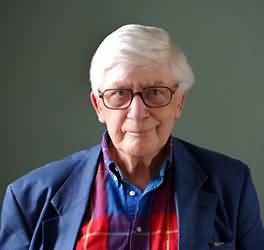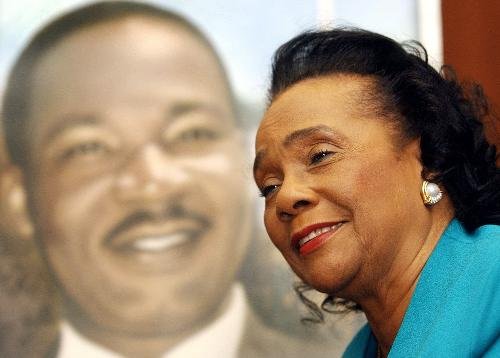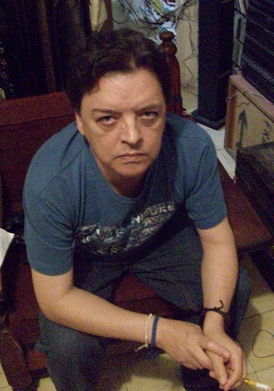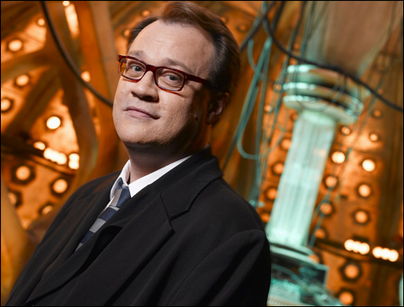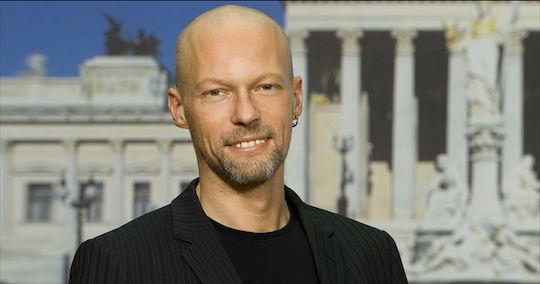|
presents THIS DAY IN GAY HISTORY based on: The White Crane Institute's 'Gay Wisdom', Gay Birthdays, Gay For Today, Famous GLBT, glbt-Gay Encylopedia, Today in Gay History, Wikipedia, and more …
Collected by Ted April 27 [{(o)}]|[{(o)}]|[{(o)}]|[{(o)}]| [{(o)}]|[{(o)}]
1906 – Friedrich-Paul von Groszheim (d.circa 2003), born in Lübeck, Germany was an ordinary German man who was imprisoned by the Nazis for the (then) crime of homosexuality under Germany's now-repealed Paragraph 175. Von Groszheim was one of 230 men arrested in Lübeck on suspicion of being gay by the SS in January 1937 under paragraph 175, which outlawed homosexuality. He was imprisoned for ten months, during which he had to wear a badge emblazoned with a capital A, for Arschficker (arse-fucker):
They beat us to a pulp. I couldn't lie down...my whole back (was) bloody. You were beaten until you finally named names.
Von Groszheim was held in a cell with no heating, very little food, and no toilet facilities. Freed, he was rearrested in 1938 and tortured. Von Groszheim was eventually offered the 'alternative' of castration or Sachsenhausen concentration camp. He 'chose' castration. Terrible as it may seem, it was a decision that probably saved his life. He was then released. Because of the castration, von Groszheim was rejected as physically unfit for military service in 1940. In 1943 he was arrested a third time, this time as a supporter of the former Kaiser Wilhelm II, and imprisoned as a political prisoner at Neuengamme concentration camp. After the war, he settled in Hamburg. Von Groszheim was never acknowledged as a victim of the Nazi regime, and due to on-going persecution of homosexuals in Germany, it took nearly half a century before he broke his silence. Eventually he explained why he began to speak out: 'I'm living proof that Hitler didn't win. I'm aware of that every day. If I don't tell my story, who will know the truth?.' He only told his story in 1992, on We Were Marked with a Big "A", a film in German with English subtitles. In 1995, he was one of eight signers to a declaration given to the US Holocaust Memorial Museum in Washington, D.C. that called for the "memorializing and documenting of Nazi atrocities against homosexuals and others."
1911 – Jack Cole (d.1974) was an American dancer, choreographer, and theatre director known as the father of theatrical jazz dance. He developed an entirely personal mode of jazz-ethnic-ballet that prevails as the dominant look of and technique for dancing in today's musicals, films, nightclub revues, television commercials and music videos. Jack Cole, a student of Ravi Shankar's older brother Uday (who popularized East Indian dance in the West), danced with the staid orientalist Denishawn troupe, and invented jazz dance by applying what he knew of Indian dance to jazz music. He stripped in Broadway's Ziegfield Follies Of 1943, opened New York's Rainbow Room, and formed a troupe that eroticized the Radio City Music Hall, Roxy, Ciro's, and the Fairmont and Dunes hotels. His Hollywood entrance didn't go well: his specialty number for Fox's Moon Over Miami (1941) was cut as too sexy and he was fired by Arthur Freed from MGM's Ziegfield Follies (1946), for "griping about all the 'queen bees' like Cedric Gibbons and Roger Edens." Minnelli, Gibbons, et al, worked within the MGM closet, but Cole was a rebel and didn't hide his gayness. At Columbia, then a minor studio, he lasted from 1944 until the McCarthy hearings of 1948, when most of his dancers fled to Europe. His first Columbia film was Cover Girl (1944) with Rita Hayworth, working with Gene Kelly, Stanley Donen, and Felix. He worked with Ann Miller and thrice more with Hayworth, his eroticism transferred almost intact to her in the 'Put the Blame on Mame' number in Gilda (1946), his homoeroticism most pronounced in the satirical 'Greek Ballet' in Down To Earth (1947). When Gilda describing herself stops in midsentence, the next word could be "stripper," for Cole based her movements on striptease. At Fox, Cole vitalized Gwen Verdon in On The Riviera, revitalized Betty Grable in Meet Me After The Show (both 1951), surrounded Mitzi Gaynor with slinky catmen in The I Don't Care Girl (1953) and became Marilyn Monroe's dance guru from Gentlemen Prefer Blondes (1953) until the end of her life, surrounding her with musclemen in There's No Business Like Show Business (1954). He returned to Metro for Vincente Minnelli's Kismet (1955; he had done the Broadway show and the 1944 film); Designing Woman; and, with Gene Kelly, Les Girls (1957). Back at Columbia, he gave Betty Grable a male harem in Three For The Show (1955). His gayness was hidden within his Orientalism, suggesting to Shirley McLean that "masculinity and gay identity" are not necessarily antithetical, erasing gender (unlike true oriental dance), and sought after by female dancers. But "for gay audiences, the classic Cole number" is 'Is There Anyone Here For Love?' in Gentlemen Prefer Blondes, featuring Physique Pictorial-type gymnasts oblivious to Jane Russell's charms: they even pump "their buttocks up and down in rhythm, an outrageous simulation of gay sex." Cole lived openly in a mansion with his lover, David Gray. Their pool parties were "very naughty and very gay," with Gray on a diving board in high heels. At a 1974 memorial for Cole, Jane Russell reminisced about Cole's penchant for gay porn.
1920 – Edwin Morgan (d.2010) was a Scottish poet and translator who was associated with the Scottish Renaissance. He is widely recognised as one of the foremost Scottish poets of the 20th century. In 1999, Morgan was made the first Glasgow Poet Laureate. In 2004, he was named as the first Scottish national poet: The Scots Makar. Morgan was born in Glasgow and grew up in Rutherglen. His parents were Presbyterian. As a child he was not surrounded by books, nor did he have any literary acquaintances. Schoolmates labelled him a swot. He convinced his parents to finance his membership of several book clubs in Glasgow. The Faber Book of Modern Verse (1936) was a "revelation" to him, he later said. Morgan entered the University of Glasgow in 1937. It was at university that he studied French and Russian, while self-educating in "a good bit of Italian and German" as well. After interrupting his studies to serve in World War II as a non-combatant conscientious objector with the Royal Army Medical Corps, Morgan graduated in 1947 and became a lecturer at the University. He worked there until his retirement in 1980. It was not until his 70th birthday that Morgan publicly acknowledged his homosexuality, which had been a criminal offense in Scotland until 1980. Morgan first outlined his sexuality in Nothing Not Giving Messages: Reflections on his Work and Life (1990). He had written many famous love poems, among them "Strawberries" and "The Unspoken", in which the love object was not gendered; this was partly because of legal problems at the time but also out of a desire to universalise them, as he made clear in an interview with Marshall Walker. At the opening of the Glasgow LGBT Centre in 1995, he read a poem he had written for the occasion, and presented it to the Centre as a gift. He published a collection in April 2010 titled Dreams and Other Nightmares, months before his death, to mark his 90th birthday. Morgan left £1 million for the creation of an annual award scheme for young poets in Scotland.
Mrs. King played a prominent role in the years after her husband's 1968 assassination when she took on the leadership of the struggle for racial equality herself and became active in the Women's Movement. On April 1, 1998 at the Palmer House Hilton in Chicago, Mrs. King called on the civil rights community to join in the struggle against homophobia and anti-gay bias. "Homophobia is like racism and anti-Semitism and other forms of bigotry in that it seeks to dehumanize a large group of people, to deny their humanity, their dignity and personhood", she stated. "This sets the stage for further repression and violence that spread all too easily to victimize the next minority group." In arguing against a
constitutional amendment banning gay marriage King said, In 2003, she invited the National Gay and Lesbian Task Force to take part in observances of the 40th anniversary of the March on Washington and Martin Luther King's "I Have A Dream" speech. It was the first time that an LGBT rights group had been invited to a major event of the African American community. King said her husband supported the quest for equality by gays and reminded her critics that the 1963 March on Washington was organized by Bayard Rustin, an openly gay civil rights activist. The great civil-rights activist and tireless supporter of gay rights succumbed to complications from a stroke and ovarian cancer in 2006.
1951 – Luis Zapata Quiroz is Mexico's most prominent gay author. He rose to popularity in the 1970s with books about the youth subculture of Mexico City. His novels examine the connection between daily life and the popular culture of radio, television, and film. Born into an upper middle-class family in rural Mexico, Zapata escaped the restrictions of his background by losing himself in the cinema. Popular culture, cinema, melodrama and soap opera have all played a significant influence on his writing. Unusually for a Mexican writer, most of his novels, and stories feature gay and bisexual characters prominently. Where heterosexual characters appear they are usually within the context of the family and there is some element of hypocrisy and concealment, so the happiness of the normal social order is in some way seen as a smokescreen for more interesting goings on beneath the surface - as is the case with much popular drama and soap opera. His style is very heavily reliant on representing convincing dialogue and conversation - often between people of different social classes. His work includes Hasta en las mejores familias (Even in the Best Families, 1975), Las aventuras, desventuras y sueños de Adonis García, el vampiro de la colonia Roma ( The Aventures, Misadventures, and Dreams of Adonis Garcia, Vampire of the Roman Colony, 1979), Melodrama (1983), En jirones (In Shreds, 1985) and La hermana secreta de Angélica María (The Secret Sister of Angelica María, 1989)
1953 – President Dwight D. Eisenhower signs Executive Order 10450 which establishes grounds for investigation and dismissal: "Any criminal, infamous, dishonest, immoral, or notoriously disgraceful conduct, habitual use of intoxicants to excess, drug addiction, or sexual perversion." Without explicitly referring to homosexuality, the executive order responded to several years of charges that the presence of homosexual employees in the State Department posed blackmail risks. As a result, more than 640 federal employees lose their jobs over the next year and a half.
1963 – Today's the birthday of Russell T. Davies (born Steven Russell Davies). Davies is a Welsh television producer and writer and the prolific writer best known for controversial drama serials such as Queer as Folk and The Second Coming. He's also garnered major Geek love for spearheading the revival of the popular science-fiction television series Doctor Who, and the spin-off Torchwood. Although Doctor Who always had serious levels of camp, Davies really stretched the series into a much more inclusive and sexually playful character. Born in Swansea, Davies aspired to work as a comic artist in his adult life, until a careers advisor at his school suggested that he study English literature; he consequently focused on a career of play- and screen-writing. After he graduated from Oxford University, Davies joined the BBC's children's department on a part-time basis in 1985 and worked in varying positions, including writing and producing two series, Dark Season and Century Falls. He left the BBC in the early 1990s to work for Granada Television and later became a freelance writer. Davies moved into writing adult television dramas in 1994. His early scripts generally explored concepts of religion and sexuality among various backdrops: Revelations was a soap opera about organised religion and featured a lesbian vicar; Springhill was a soap drama about a Catholic family in contemporary Liverpool; The Grand explored society's opinion of subjects such as prostitution, abortion, and homosexuality during the interwar period; and Queer as Folk, his first prolific series, recreated his experiences in the Manchester gay scene. His later series include Bob & Rose, which portrayed a gay man who fell in love with a woman; The Second Coming, which focused on the second coming and deicide of Jesus Christ; Mine All Mine, a comedy about a family who discover they owned the entire city of Swansea; and Casanova, an adaptation of the Venetian lover's complete memoirs. His most notable achievement is reviving and running the science fiction series Doctor Who after a sixteen year hiatus, with Christopher Eccleston, and later David Tennant, Matt Smith, and Peter Capaldi in the title role of the Doctor. Davies was awarded an OBE in 2008 for services to drama, which coincided with his announcement that he would step down from as the show's executive producer with his final script, The End of Time (2009-10). Davies moved to Los Angeles, California, to oversee production of Torchwood: Miracle Day and, before the death of Elisabeth Sladen, series five of The Sarah Jane Adventures.He has since returned to Manchester. His latest show, Cucumber, a spiritual successor to Queer as Folk focuses on middle-aged gay men in the Manchester gay scene, and is accompanied with Banana, an E4 anthology series featuring younger characters across the LGBT spectrum on the periphery of the Cucumber narrative, and Tofu, an online documentary series available on 4oD discussing modern sex, sexuality and issues arisen during the show with the cast and public. The three names reference a urological scale categorising the male erection by hardness from tofu to cucumber, and are used to symbolise differences in sexual attitudes and behaviour between the two generations. Although Cucumber is designed as a self-contained serial focusing on the life of one man, Davies envisions Banana as open-ended and believes it could continue after its sister series finishes. Davies' next project after Cucumber and Banana will be The Boys, a Channel 4 series about the HIV/AIDS crisis during the 1980s. The Boys will be a dramatised retrospective of the crisis which focuses on the men "living in the bedsits" during the 1980s as opposed to films such as Pride which focus on gay activists; Davies notes that the stories regarding the politics of the crisis and the virus itself has been told, but not those regarding the early victims of the virus itself. Davies describes The Boys as a way of "coming to terms" with his own actions during the 1980s, when the shock of the crisis prevented him from properly mourning the deaths of his close friends. After The Boys, Davies plans to write a series about sextortion that draws inspiration from real-life incidents of blackmail that resulted in suicide. Davies is openly gay and has been with his partner, customs officer Andrew Smith, since 1999.
1969 – Marco Schreuder, born in Putten , Netherlands, is an Austrian politician ( Greens ). He was a member of the Vienna State Parliament and City Council until 2010 and a member of the Austrian Federal Council from November 4, 2011 to 2015 , of which he has been a member again since October 23, 2019. Marco Schreuder was born in Putten, in the province of Gelderland in the Netherlands. In 1975 his parents emigrated with him and his sister to Sankt Wolfgang in the Salzkammergut. From 1975 he attended the elementary school in Rußbach near St. Wolfgang and from 1979 the secondary school in Bad Ischl . In 1983 Schreuder continued his training at the Salzkammergut tourism school in Bad Ischl, and in 1984 the family moved to this town. After graduating from high school, Schreuder went to Vienna in 1988, where, after a few months as a waiter, he began studying art history at the University of Vienna. Without any previous experience, Schreuder applied in 1991 to study directing at the Max Reinhardt Seminar where he studied until 1995. His diploma production “Lederfresse” by Helmut Krausser was invited to a festival in Moscow. Schreuder became heavily involved in the gay and lesbian scene and began writing articles in lesbian and gay media in 1996. In 1997 Schreuder was press spokesman for the festival “Vienna is the other way around - temptations from the other bank”, from 1998 he worked for “T Junction Contemporary Dance”. The project was discontinued in 2000 due to a lack of subsidies. After the end of the dance project, Schreuder became editor-in-chief of the gay magazine Bussi in 2000 , and in 2001 he joined the Green Club in the town hall as a speaker for human rights and anti-discrimination. After working as a specialist at the Wiener Grünen, Schreuder was elected spokesman for the Greens the other way round . From 2005 to 2010 he was a member of the Vienna state parliament and local council . He was the first openly gay member and campaigns primarily for the rights of homosexual and bisexual people as well as transgender people and fights for the preservation of the Jewish cemetery in Währing .On October 21, 2011, Schreuder was sent to the Federal Council for the first time by the Vienna State Parliament and City Council . From 2013 he was chairman of the Green parliamentary group. After the state parliament and municipal council elections in Vienna in 2015 , Marco Schreuder was no longer confirmed as a member of the Federal Council by the General Assembly of the Vienna Greens and had to leave the Federal Council on November 23, 2015 in favor of his party colleague Ewa Ernst-Dziedzic, who took over the Green Federal Council mandate in Vienna. Marco Schreuder grew up as a Jehovah's Witness. In his youth he became an agnostic . In 2005 he married his same-sex partner while still a Dutch citizen . He then took on Austrian citizenship in order to be able to run for the state and municipal council elections.
1992 – James Duke Mason is an American politician, writer, and political activist. He is the son of singer Belinda Carlisle and film producer Morgan Mason, and the grandson of the late British actor James Mason. In 2010, The Advocate listed Mason as one of the most influential young LGBT Americans in their "Forty Under 40" issue. He was named in OUT magazine's 2011 "Out 100" issue as one of the 100 most influential LGBT people in the world. Born in Los Angeles, Mason moved to Europe with his parents as a child. In an Attitude Magazine interview, Mason stated that he is openly gay and that he came out to his family and friends at the age of 14 in 2006. After graduating from Mougins School, an international school in the south of France in July 2010, Mason moved back to the U.S. to study Political Science at California Lutheran University. After a year he moved to West Hollywood, California to focus on his efforts in grassroots advocacy. He was appointed to serve as a Page in the U.S. House of Representatives during the summer of 2008, and also worked as a volunteer for Hillary Clinton during the 2008 Democratic primaries. He has appeared on TV shows such as Dr. Phil, Nancy Grace, and Politicking with Larry King to discuss LGBT issues, has written articles for websites such as The Huffington Post and The Advocate, and did a YouTube video to back the It Gets Better campaign. In December 2011 it was announced that Mason was appointed to the board of directors of Outfest, making him the youngest member in the organization's 30-year history. He began his term in January 2012. He served as an official surrogate for the campaign of Barack Obama in the 2012 U.S. Presidential Election. He had a small acting role in the film What Happens Next, which screened as part of the Hollywood Film Festival. He was a candidate for the West Hollywood City Council in the March 3, 2015 election.
In 2016, Landry was named to Canada's first ever women's rugby sevens Olympic team, which won the bronze medal in a match against Great Britain. In 2017, Landry moved into first place all-time in HSBC World Rugby Women's Sevens Series scoring with 706 points. In June 2021, Landry was named to Canada's 2020 Summer Olympics team. Landry attended Saint Francis Xavier University. She came out as homosexual in 2006 and married her partner in 2018. In 2021, she announced her retirement from the sport, hanging up the boots at the age of 33 after an illustrious international career that spanned a decade.
2009 – Iowa becomes the third state to allow same-sex marriage.
[{(o)}]|[{(o)}]|[{(o)}]|[{(o)}]| [{(o)}]|[{(o)}] |
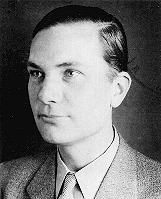
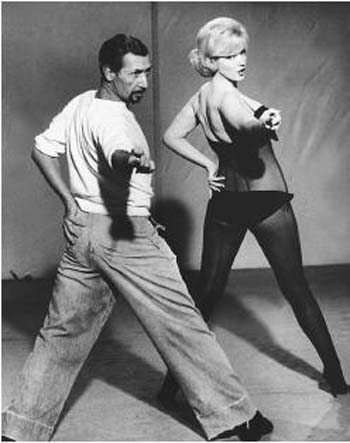 Jack Cole rehearsing Marilyn Monroe
Jack Cole rehearsing Marilyn Monroe